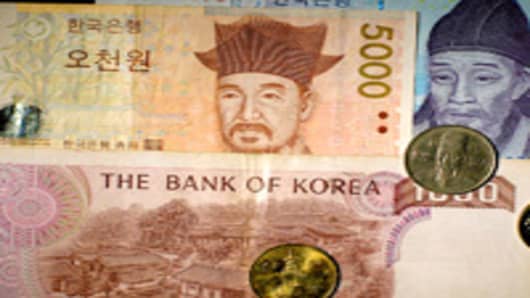South Korea's central bank on Thursday held interest rates steady at a record low for the fourth consecutive month, judging Asia's fourth-largest economy had stopped falling but is still far from a full recovery.
A media official from the Bank of Korea (BOK) announced the monetary policy committee's decision to leave the base rate unchanged at 2.0 percent without elaborating. Governor Lee Seong-tae is due to hold a news conference later in the session.
Analysts said the still fragile economy, faced with weak export demand, pointed to the need for the Bank of Korea to stand pat for an extended period but added a rebound in global energy and commodities prices were emerging as a fresh risk.
"In fact, we think the BOK is done at 2 percent and the next move will be up, but that is not likely to be seen before next year," said Frederic Neumann, economist for Asia Pacific at investment bank HSBC in Hong Kong.
"Regional central banks including the BOK will likely wait for signals as to what the Federal Reserve intends to do because of the exchange rate ramifications if they move independently."
All 13 analysts in a Reuters poll had forecast the central bank would hold the 7-day repurchase agreement rate steady.
More From CNBC.com
- Japan Economy to Scrape Along after Hitting Bottom
- Chinese Prices Fall but Market Looks Past Deflation
- Singapore Economy Seen Shrinking 6.5% in 2009
- More Asia Pacific News
The Bank of Korea had cut the base rate by a total of 3.25 percentage points between last October and February in step with an unprecedented worldwide rate-cutting campaign to arrest the worst global downturn in decades.
South Korean markets showed a muted reaction to the decision, awaiting the governor's news conference, at which Governor Lee is expected to provide the central bank's assessment of the economy along with possible clues on the future policy direction.
Investors are also keen to hear from Governor Lee what the central bank would do to prevent the ample short-term liquidity in the financial system from giving rise to asset price bubbles and in turn inflation pressures down the road.


